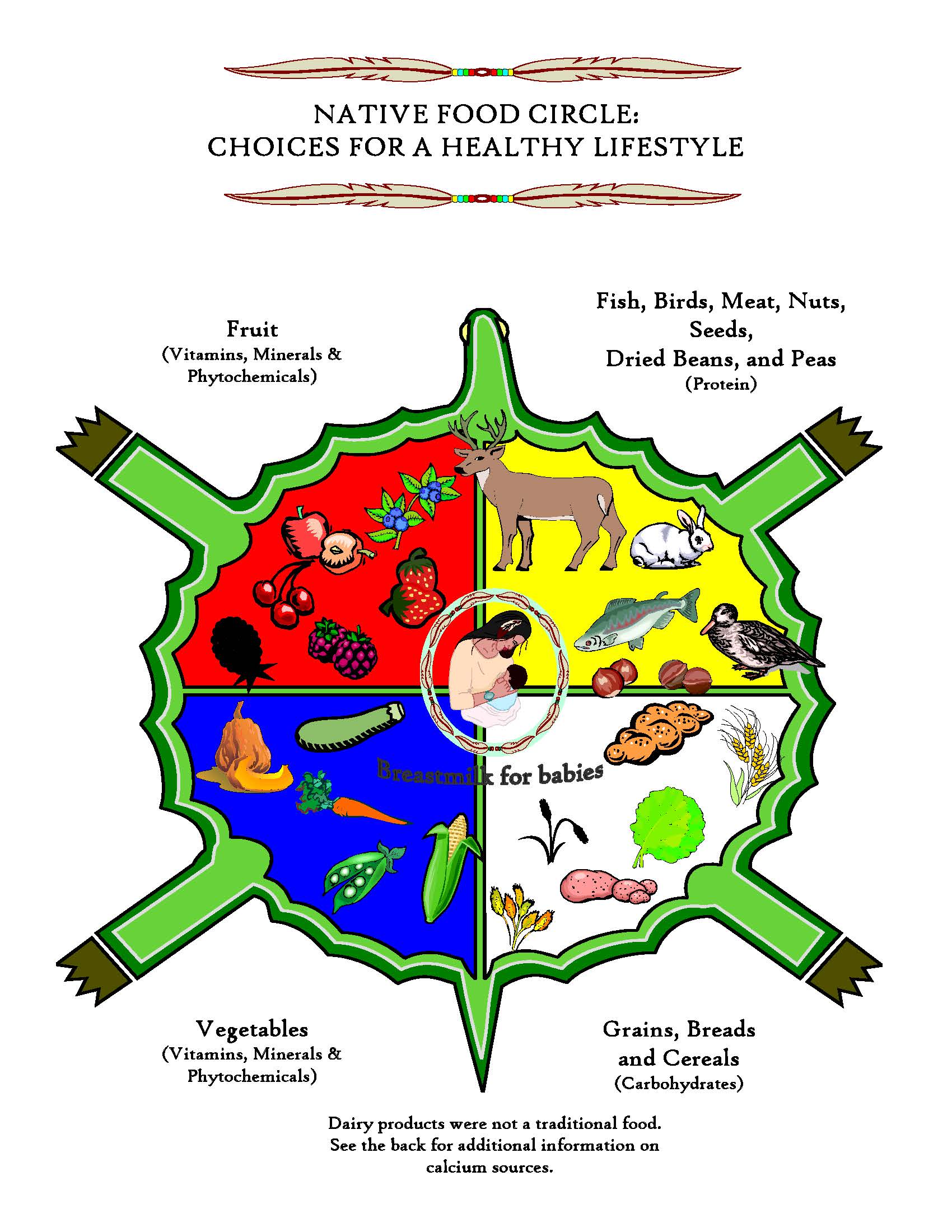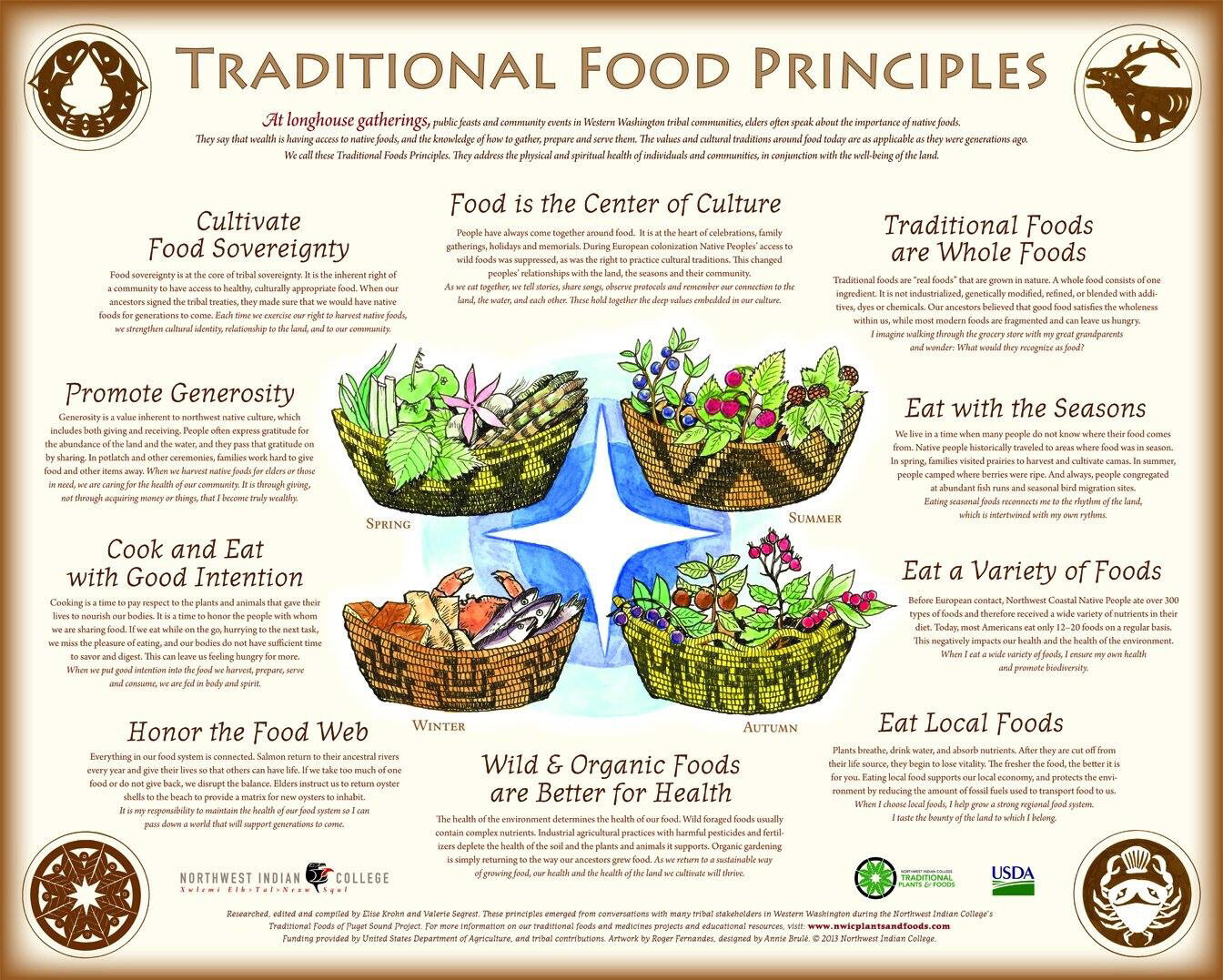
Nourishing the Inner Compass: Native American Foods for a Healthy Endocrine System
The intricate dance of the endocrine system, a network of glands producing hormones that regulate everything from mood and metabolism to growth and reproduction, is a marvel of biological engineering. Maintaining its delicate balance is paramount for overall well-being. For millennia, Indigenous peoples across North America have cultivated a profound understanding of the natural world, weaving this knowledge into their diets. Their traditional foods, deeply connected to the land and seasons, offer a powerful blueprint for supporting a robust and resilient endocrine system.
This article explores the principles behind Native American dietary practices and highlights specific foods that contribute to endocrine health, offering a glimpse into how these ancestral wisdoms can inform our modern pursuit of wellness.
The Foundation: Harmony with Nature and Whole Foods

At the heart of Native American cuisine lies a philosophy of profound respect for nature. Food was not merely sustenance; it was a gift from the earth, to be utilized with gratitude and minimal waste. This ethos translated into diets that were overwhelmingly plant-based, featuring an abundance of wild game, fish, and foraged ingredients. The emphasis was always on whole, unprocessed foods, consumed in their natural state, free from the refined sugars, artificial additives, and processed fats that often plague modern diets.
This focus on whole foods is intrinsically linked to endocrine health. Hormones, the messengers of our endocrine system, are sensitive to the quality of nutrients we provide our bodies. Complex carbohydrates, healthy fats, and a diverse array of micronutrients found in traditional Native American foods are essential building blocks for hormone production, regulation, and utilization.
Key Food Groups and Their Endocrine Benefits:
Several staple food groups within traditional Native American diets stand out for their significant contributions to endocrine health:
-
Ancient Grains: The Pillars of Sustenance
- Corn (Maize): More than just a food source, corn held spiritual and cultural significance for many tribes. Beyond its caloric value, corn is a good source of complex carbohydrates, providing sustained energy without the blood sugar spikes associated with refined grains. Its fiber content aids in digestion and can help regulate blood sugar levels, a crucial factor for hormonal balance, particularly for conditions like insulin resistance and PCOS. Furthermore, corn contains certain B vitamins essential for energy metabolism and neurotransmitter production, indirectly supporting the endocrine system.
- Beans (Legumes): A cornerstone of many Native American diets, beans are nutritional powerhouses. They are rich in protein, fiber, and a spectrum of minerals like magnesium, zinc, and iron. Magnesium plays a role in numerous enzymatic reactions, including those involved in hormone synthesis and signaling. Zinc is vital for thyroid hormone production and function. Iron is essential for carrying oxygen, impacting energy levels and overall metabolic health. The slow-releasing carbohydrates in beans also contribute to stable blood sugar, benefiting the adrenal glands and preventing energy crashes.
- Squash (Gourds): These versatile vegetables, ranging from pumpkins to zucchini, are packed with vitamins, minerals, and antioxidants. Their natural sweetness comes from complex sugars that are digested slowly. Squash is particularly rich in Vitamin A, crucial for immune function and cell growth, which indirectly supports hormonal regulation. The fiber content aids in digestive health, a pathway often linked to hormone balance.

-
Wild Game and Fish: Lean Protein and Essential Fats
- Venison, Bison, Turkey, etc.: Lean wild game provided essential amino acids for protein synthesis, a fundamental process for hormone creation. These meats are also excellent sources of iron, zinc, and selenium, all vital for endocrine function. Selenium, in particular, is a key component of thyroid hormones.
- Salmon, Trout, etc.: Fatty fish were a prized source of omega-3 fatty acids. These essential fats are critical for reducing inflammation, which can disrupt hormonal communication. Omega-3s are also vital for brain health, influencing the hypothalamic-pituitary axis, the master control center of the endocrine system. They play a role in regulating mood and reducing stress, indirectly supporting the adrenal glands.
-
Nuts and Seeds: Tiny Treasures of Essential Nutrients
- Sunflower Seeds, Pumpkin Seeds, Acorns, Walnuts: These often overlooked ingredients are dense with healthy fats, protein, fiber, and a wealth of micronutrients. They are particularly rich in magnesium, zinc, and selenium, all of which are indispensable for endocrine health. Healthy fats are the building blocks for steroid hormones like estrogen, testosterone, and cortisol. The fiber aids in digestion and blood sugar control.
-
Berries and Fruits: Antioxidant Powerhouses
- Blueberries, Cranberries, Blackberries, Strawberries, Wild Plums: These vibrant fruits are bursting with antioxidants, vitamins, and natural sugars. Antioxidants combat oxidative stress, a major contributor to cellular damage and inflammation that can impair endocrine function. The natural sugars, consumed in moderation within a whole-food context, provide energy without overwhelming the system. Certain berries are also known for their anti-inflammatory properties, further supporting hormonal balance.
-
Herbs and Roots: Medicinal and Nutritional Elixirs
- Echinacea, Sage, Wild Ginger, Dandelion Root: Beyond their culinary uses, many Native American herbs and roots were utilized for their medicinal properties. While specific applications varied, many possess adaptogenic qualities, helping the body better cope with stress. Stress significantly impacts the adrenal glands and the production of cortisol. Anti-inflammatory and antioxidant compounds found in these plants also contribute to overall endocrine health.
Connecting Ancient Wisdom to Modern Endocrine Health:
The principles of Native American food traditions offer invaluable lessons for contemporary individuals seeking to optimize their endocrine systems:
- Prioritize Whole, Unprocessed Foods: Focus on consuming foods in their natural state, minimizing refined sugars, processed grains, and artificial ingredients.
- Embrace Plant-Based Staples: Incorporate a wide variety of vegetables, fruits, beans, and ancient grains into your diet.
- Include Lean Proteins and Healthy Fats: Opt for lean meats, fish, nuts, and seeds to provide essential building blocks for hormones.
- Hydrate Wisely: Traditional diets often involved water, herbal teas, and broths, promoting natural hydration without the added sugars of modern beverages.
- Mindful Eating: The act of preparing and consuming food was often a mindful practice, fostering a deeper connection to nourishment and promoting better digestion and nutrient absorption.
- Seasonal Eating: Aligning your diet with the seasons, as was customary, ensures a diverse intake of nutrients and supports the body’s natural rhythms.
Recipes Inspired by Native American Traditions for Endocrine Health:
While precise historical recipes are often passed down orally, we can draw inspiration from the core ingredients and principles to create modern dishes that honor this legacy and support endocrine function.
1. Three Sisters Stew (Corn, Beans, Squash)
This iconic dish embodies the synergy of corn, beans, and squash, offering a complete protein profile and a wealth of fiber and micronutrients.
Ingredients:
- 1 tablespoon olive oil or rendered animal fat
- 1 large onion, chopped
- 2 cloves garlic, minced
- 1 cup cubed butternut squash or pumpkin
- 1 cup corn kernels (fresh or frozen)
- 1 (15-ounce) can black beans, rinsed and drained (or 1 cup cooked dried beans)
- 1 (15-ounce) can kidney beans, rinsed and drained (or 1 cup cooked dried beans)
- 4 cups vegetable broth or low-sodium chicken broth
- 1 teaspoon dried sage
- 1/2 teaspoon dried thyme
- Salt and freshly ground black pepper to taste
- Optional: A handful of chopped fresh cilantro or parsley for garnish
Instructions:
- Heat oil or fat in a large pot or Dutch oven over medium heat. Add onion and cook until softened, about 5-7 minutes. Add garlic and cook for another minute until fragrant.
- Add the cubed squash to the pot and cook for 5 minutes, stirring occasionally.
- Stir in the corn, black beans, and kidney beans.
- Pour in the vegetable broth. Add sage and thyme. Bring to a simmer.
- Reduce heat to low, cover, and simmer for 20-30 minutes, or until the squash is tender.
- Season with salt and pepper to taste.
- Serve hot, garnished with fresh herbs if desired.
Endocrine Benefits: Rich in complex carbohydrates, fiber, protein, magnesium, zinc, and Vitamin A. Promotes stable blood sugar, aids digestion, and provides essential nutrients for hormone production.
2. Wild Salmon with Berry Compote
This recipe highlights the power of omega-3 rich fish paired with antioxidant-packed berries.
Ingredients:
- 2 (6-ounce) salmon fillets, skin on or off
- 1 tablespoon olive oil or melted butter
- Salt and freshly ground black pepper to taste
- 1 cup mixed berries (fresh or frozen: blueberries, raspberries, blackberries)
- 1 tablespoon maple syrup or honey (optional, for sweetness)
- 1 teaspoon lemon juice
Instructions:
- For the Berry Compote: In a small saucepan, combine the mixed berries, maple syrup/honey (if using), and lemon juice. Cook over medium-low heat, stirring occasionally, until the berries have softened and released their juices, about 5-10 minutes. Mash some of the berries with a spoon for a thicker consistency. Set aside.
- For the Salmon: Preheat your oven to 400°F (200°C) or heat a skillet over medium-high heat.
- If baking, place salmon fillets on a baking sheet lined with parchment paper. Drizzle with olive oil or butter, and season with salt and pepper. Bake for 12-15 minutes, or until cooked through and flakes easily with a fork.
- If pan-searing, heat olive oil or butter in a skillet over medium-high heat. Season salmon with salt and pepper. Sear salmon, skin-side down first (if using skin-on), for 4-5 minutes per side, until cooked through.
- Serve salmon fillets topped with the warm berry compote.
Endocrine Benefits: Excellent source of omega-3 fatty acids for reducing inflammation and supporting brain health. Berries provide antioxidants to combat oxidative stress. Supports healthy hormone signaling and immune function.
3. Acorn Flour Pancakes with Toasted Pumpkin Seeds
A nod to the use of acorns and the importance of seeds in the traditional diet.
Ingredients:
- 1 cup acorn flour (or a mix of whole wheat and almond flour if acorn flour is unavailable)
- 1 teaspoon baking powder
- 1/2 teaspoon ground cinnamon
- Pinch of salt
- 1 large egg
- 1 cup unsweetened almond milk or water
- 2 tablespoons melted coconut oil or melted butter
- 1/4 cup toasted pumpkin seeds (pepitas) for topping
- Pure maple syrup for serving (optional)
Instructions:
- In a medium bowl, whisk together the acorn flour, baking powder, cinnamon, and salt.
- In a separate bowl, whisk together the egg, almond milk/water, and melted coconut oil/butter.
- Pour the wet ingredients into the dry ingredients and whisk until just combined. Do not overmix.
- Heat a lightly oiled griddle or non-stick skillet over medium heat.
- Pour about 1/4 cup of batter for each pancake onto the hot griddle.
- Cook for 2-3 minutes per side, or until golden brown and cooked through.
- Serve pancakes warm, topped with toasted pumpkin seeds and a drizzle of maple syrup if desired.
Endocrine Benefits: Acorn flour (or whole grains/almonds) provides complex carbohydrates and fiber. Pumpkin seeds are a good source of magnesium and zinc, crucial for hormone regulation. Supports sustained energy and nutrient intake.
Conclusion: Reconnecting with Ancestral Nourishment
The food traditions of Native American peoples offer a profound and timeless approach to health, particularly for the intricate workings of the endocrine system. By embracing the principles of whole, unprocessed foods, seasonal eating, and a deep connection to the natural world, we can not only nourish our bodies but also foster a more harmonious and resilient endocrine system, allowing our inner compass to guide us towards vibrant well-being. These recipes are a starting point, an invitation to explore the rich tapestry of flavors and nutritional wisdom that has sustained Indigenous communities for generations, and which can continue to empower our health today.


